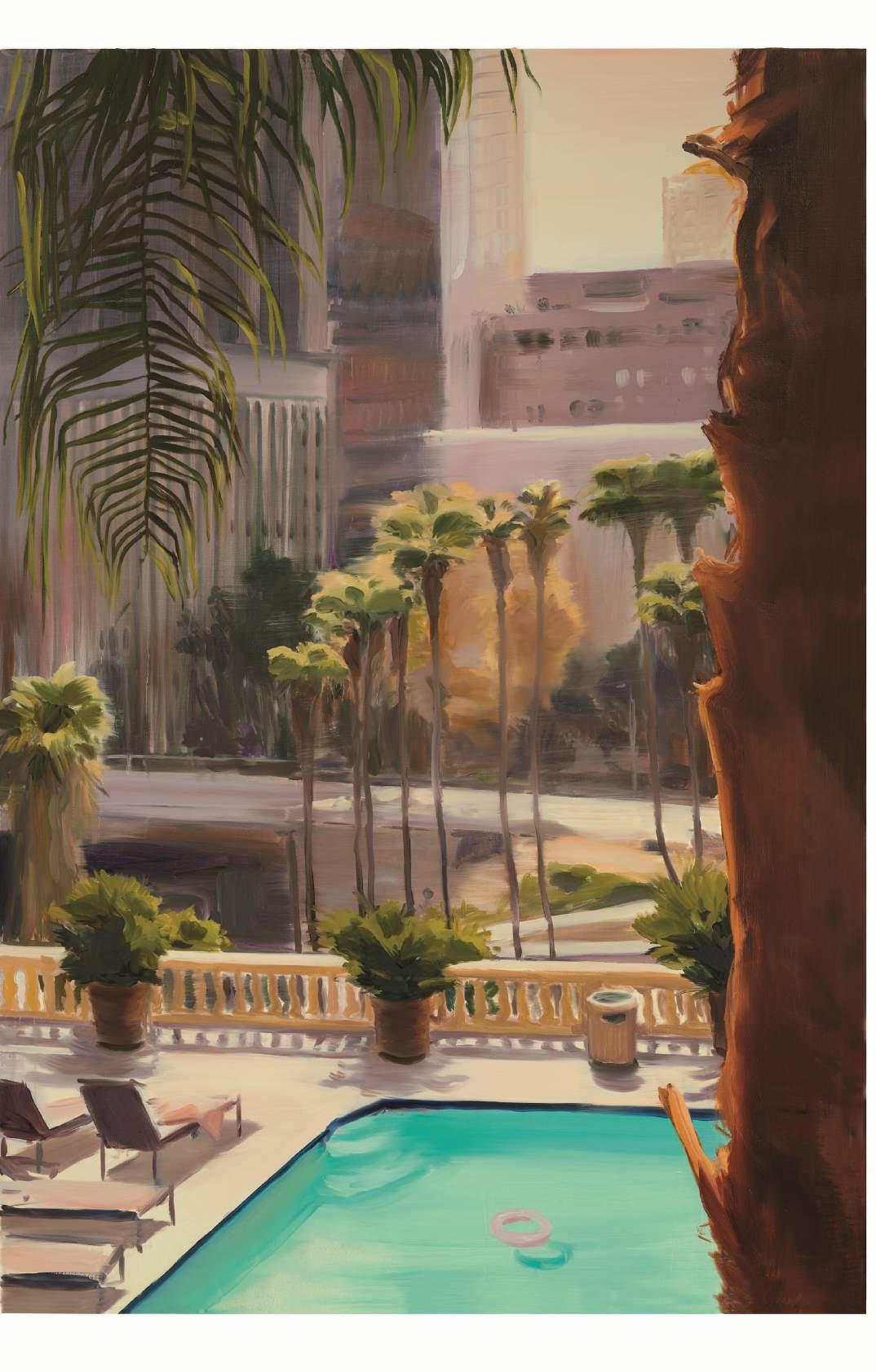
DeBezigeBij TheBusyBee ForeignRightsGuide FrankfurtBookFair2023 Atthefairyou'llfindusinhall4.1F26
TABLE OF CONTENTS ............................................................................................................... FOREIGN RIGHTS GUIDE Tommy Wieringa Lisa Weeda Martijn Couwenhoven Koen Peeters Nirvana.......................................................... Dance Dance Revolution............................... The Prayer of Jonathan Simmers................... Georges........................................................ 4 10 12 14 NEW LITERARY FICTION Jonah Falke Theo Toebosch Meredith Greer Lammert Kamphuis Robert Vuijsje Rudi Meulemans Jan Drost Marcel Langedijk Peter Mooij and Joke van Leeuwen The History of my Sock................................... Kobarid.......................................................... Interlude........................................................ Addicted to Always Being Right.................... Make the World a Better Place...................... The Man in the Panama Hat.......................... This is Not the End......................................... Hans Klok....................................................... Our Stardust Brains: The essence of our existence in fact and fiction.......................... 16 18 20 22 24 26 28 30 32 NEW LITERARY NON-FICTION

Anne Eekhout Valentijn Hoogenkamp John Kuipers Marcel Möring Jeroen Olyslaegers Gijs Wilbrink Mary............................................................. Antiboy........................................................ Mussert's Shadow........................................ Family Walk.................................................. Will............................................................... The Animals................................................. 36 37 38 39 40 41 SUCCESSFUL TITLES FICTION Raoul de Jong Bart Van Loo Max Nieuwdorp David Van Reybrouck Barbara Skarga Paul Verhaeghe Jaguar Man................................................. Napoleon..................................................... We Are Our Hormones................................. Revolusi........................................................ After the Liberation..................................... Discontent................................................... 42 43 44 45 46 47 SUCCESSFUL TITLES NON-FICTION ............................................................................................................... FRANKFURT BOOK FAIR 2023 John Kuipers The Göring Hoax.......................................... CRIME FICTION 34
Praise for Nirvana:
‘An all-consuming fire blazes in Wieringa’s stunning novel Nirvana. A tour de force.’ -de Morgen
‘Almost 500 pages of gripping literature that you simply cannot put down, both moving and thought-provoking. ’ -Dagblad van het Noorden
‘Nirvana is a novel about contrasts, about clashing mentalities and attitudes toward life, applied with a subtle and stinging hand.’
-Vrij Nederland
‘Wieringa never loses his grip on his rich material. Impressive. Nirvana is his most ambitious novel yet.’ -Het Parool
‘Written with fire and light. The new Wieringa was worth the wait. His ninth is one of those books that you read more and more slowly as you reach the end because you don’t want it to be over. ’
-de Standaard
‘A great novel in which everything impinges on everything else. A magnum opus. ’ -De Tijd
TOMMY WIERINGA (1967) is the author of Joe Speedboat (F. Bordewijk Prize), Little Caesar (shortlisted for the International IMPAC Dublin, Literary Award), These are the Names (Libris Literature Award), The Death of Murat Idrissi (nominated for the Man Booker International Prize) and The Blessed Rita (BookSpot Literature Prize and Readers’ Prize), among many others. In 2014 he wrote A Beautiful Young Wife (the gift book for Dutch Book Week). His work has been translated worldwide.

DE BEZIGE BIJ ...............................................................................................................
4
Tommy Wieringa Nirvana
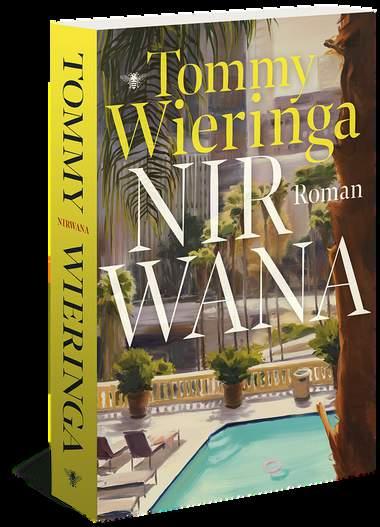
A grandfather’s past determines a grandson’s present. Together they tell the story of a century in which the global conflagration blazed up as never before
Celebrated artist Hugo Adema is a scion of an illustrious family that has left its mark on modernity for decades. His grandfather, Willem Adema, established his offshore empire after having played a dubious role in WWII. While Hugo's twin brother, now the head of the family business, is building the largest ship in the world, Hugo’s own life reaches an impasse when his great love deserts him. He returns to the country estate where he spent his childhood to take up painting once again and to investigate the past of his grandfather, who is now a hundred years old. When his former governess passes away, the long-lost diaries of Willem Adema turn up in her house, casting a shocking light on his war years. Is this the moment to set history straight?
Nirvana is a dazzling epic about a family that spent generations intent on conquering the earth, even when it becomes apparent that fire is a good servant but a bad master.
World rights: De Bezige Bij
• Several option publishers
• Rights sold: Pauza (Poland), Iperborea (Italy)
• Fiction
sample translation available
• 480 pages
• September 2023
• English
• Featured by The Dutch Foundation for Literature

NEW LITERARY FICTION ...............................................................................................................
5
Nirvana

After years of disuse, the pool between the villa and wood’s edge is swum in almost daily during the summer of 1990. The heatwave that started in late July and lasted ten days is over; it is still very hot. At the bottom of the pool, a boy is working on his own underwater record. In June he turned fourteen. The cruel season. As he pushes off from the tiled floor and rockets to the surface, void of breath, it is as though he will die, but that will not be for another fifty-eight years, on this same estate, in yet another season and under circumstances best described as paradoxical. Now he is alive, Hugo Adema the boy, and how: gasping for breath he breaks the water’s surface. He swims to the edge and hoists himself up. His heart thumps, his shoulder blades jut sharply as he stands beside the cubicles, wrapping a towel around his waist. He is skinny and brown as a chipmunk, all bones and hide. Since recently, a pencil stroke of hair has begun to climb from his trunks to his navel.
On the hot stones, his wet footprints fade quickly. The boy’s thoughts are on his new record, one minute and twenty-eight seconds, but otherwise flit here and there. In his grandfather’s copy of De Telegraaf he has read about the fall of the Berlin Wall, the impending reunification of the two Germanies, and about the Gulf War, which broke out earlier that month, but his own day-to-day cares seem incomparably greater. The future is a darkness, ever since he’s been lodged with his grandparents. The never-ending quarrels and fights with his brother got so out of hand that, within no time, each new au pair was pushed to the brink of collapse.
6
This, his parents must have thought, would be an elegant, simple solution: he here on his grandparents’ Wassenaar estate, his twin brother at home on Groot Hasebroekseweg, separated by no more than two kilometers as the crow flies, but the banishment is total. No date has been fixed for when this will be over, and so his excommunication stretches into infinity, nor will they on any given day switch places, allowing him to return home and his brother to be deposited here, and that makes him feel truly ostracized, the unwanted one of the two. He misses the dogs.
The summer days are unbearably slow, with only two elderly people and a cook for company, although “elderly” may not be quite the right word for his sprucely grandmother or for his grandfather’s severity. He, the old man, is gone most of the time; at seventy-four, he still runs his company with a steady hand. The boy feels more comfortable around the house when he’s not there. He misses not only the dogs, but his mother too. Especially her, to tell the truth, but he’d rather swallow his tongue than do that. She’s the one who came up with this arrangement, he’s sure of that. He’ll never forgive her for it.
The sun is blazing, a pleasant shiver runs over his skin. From the woods’ edge comes the cooing of a stock dove, its voice so much more unassuming than that of the young rook on the lawn, flapping its wings and begging its parents for food. The sprinkler on the green ticks as it turns; the gardener moves it a few times a day. The man leads a hidden life on the estate, generally making his presence known only by the distant racketing of brush cutter or chainsaw. When Hugo turns, he sees his grandfather at the far end of the pool, in a ruby-red bathrobe.

7
He’s come up through the cellar, the door is still open. The boy is startled: how long has he been standing there? The old man stares at him, not moving. His gaze fathomless.
Between the broad terry-cloth lapels, the whiteness of his chest is dimly visible. The boy walks to him along the pool’s edge, as though on command. “Are you going to go swimming, pake?” Hugo prattles. As he utters the words, something seems to stick in his craw.
‘I’ve always been a great one for swimming,” his grandfather says. “In the sea. ” He squints against the glistening off the water. “But on a hot day like this…” He takes off his bathrobe and folds it over the back of a deck chair. The boy averts his eyes. Willem Adema, glazed in formality, wears a tie at the dinner table even in his own home; that his suits actually serve to contain a human of flesh and blood seems obscene to the grandson.

Unlike the boy, the grandfather is extremely interested in the reunification of the two Germanies and in the Gulf War, just as he has been in the startling disintegration of the Soviet Union and in the price of crude oil which, since the Iraqi invasion of Kuwait, has skyrocketed to 41 dollars a barrel – every morning, a folder is placed on his desk with clippings of the most important news from the global energy industry. He weighs his chances, the chairman of the board of Adema Marine Operations does. The offshore sector follows the ebb and flow of the global economy, and the global economy follows the ebb and flow of the price and supply of oil and gas – a fiery tango.
For the offshore industry, the end of the Cold War brings new concessions within reach. The conquest of the Earth goes on unabated; men like him scan the farthest corners of the planet to see where they can plant their high-tech machinery in mother bedrock.
8
All that hewing, drilling, digging and extracting from the earth’s crust has the aspect of a symbolic rape, an act of violence with which they heed the divine command given to mankind in the beginning of days, to be fruitful, and to govern over the earth and all that is in it. As his grandfather backs down the ladder into the pool, Hugo sees a small tattoo on the back of his upper arm, a little dark circle on his white skin. He looks again: the circle is about six inches below his armpit. There is nothing else it can be but a tattoo. The old man lowers himself all the way into the water, and resurfaces with a snort. Could it be the first letter of his grandmother’s name, Odilia, the boy asks himself. Or is it the brand of some secret society to which his grandfather once belonged? Old Adema doesn’t seem romantic enough for the former; with his second supposition, the boy unwittingly comes much closer to the truth.
For the rest of his life, Hugo will remember the fleeting moment at poolside as the start of something: the water and the light, the nagging grief and the euphoria at his abandonment, and also the tattoo on the arm of the old man with those pale eyes, on that summer afternoon in the hottest year since the start of meteorological recordkeeping in 1705.
Pages 11-14 translated by Sam Garrett

9
Excerpt:
Dance, dance the body of a woman imploded by a shell, dance her back into time. Feel your skin turn tight and supple. Look into the street of the village and see the tank roll backwards, the shell escape from a cloud of pink haze, the haze change into blood into bones and intestines and heart and lungs and muscles and sinews and nerves and skin. Watch eyes squeezed shut as they open gigantically wide, grow small, gaze serenely, not to the left but straight ahead, hear a mouth swallow a sound, see a raised hand return to a bicycle’s handlebar, the bike come into motion, the backward-circling feet bear down on the pedals. Observe as the dust lays itself back down on the ground, as the tank rides out of sight behind a garden fence in a cheerful shade of blue. Dance down the path of the young woman cycling backward, beat your chest and leap in time with her pedaling feet. Clap your hands as she leaves the bike in the garden shelter, swings the door open again, seats herself at the kitchen table, and spits a little coffee back into a mug with a family photo. Raise your knees, one by one, there in the kitchen. Cross your arms over your chest. Kick and kick and kick your legs. Kick them into the air.
LISA WEEDA (1989) is a Dutch-Ukrainian writer, literary producer, screenwriter, audio fan and virtual reality director. Text is always the foundation of her work, but it is free in form and often centers on Ukraine, her grandmother’s homeland. Lisa Weeda was hailed as the literary talent of 2022 by the Dutch newspaper de Volkskrant. Aleksandra, her debut novel, was awarded the Bronze Owl Award, nominated for the Booksellers’ Prize and shortlisted for the 2022 Libris Literature Prize. The novel has been published in eight countries, including Germany, Poland and France.

DE BEZIGE BIJ ...............................................................................................................
10
Lisa Weeda
Dance dance revolution

Four dark tales that try to bring the dead back to life
This is the night when the villagers of Utshelinavka drive out darkness and evil. This is the day when Toni picks up two children’s bodies during her shift at the ‘body-drop-off’ center in Switzerland. This is the morning when the dead soldier Danylo is danced back to life by a Dutch girl. This is the moment when we are supposed to act, not look away.
This is Dance Dance Revolution, a book in which Lisa Weeda, in four nearly magical story lines, takes on westsplaining, the sorrow of nine hopeless, draining years of the Russo-Ukrainian War, the power of old rituals and the issue of labor migration in Europe.
‘All too often the good old days have betrayed us, ’ Lisa Weeda writes, ‘but our dance, like a narrow alley you can barely squeeze through to reach the other side, has always saved us in the nick of time.’
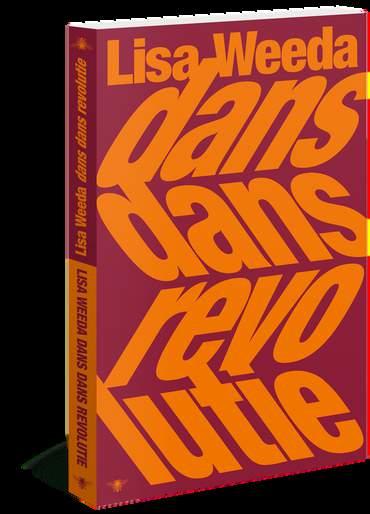
NEW LITERARY FICTION ...............................................................................................................
World rights: De Bezige Bij • Fiction • 128 pages • February 2024
11
Excerpt:
‘Amid the people streaming in and out of the station, one person is standing still, directly beneath the station clock, in one hand he is holding a plastic bag which presumably contains the urn, he waves at me with the other, as if he’s not sure I’ll still recognize him, it’s been ten years and this is the first time I’ve seen him without a beard, but the man with the crooked back, the restless expression, the gray French cap, the brown leather jacket, the faded jeans and the sneakers whose soles are worn out on their inner edge, is unmistakably my father. When he starts talking to me I look with some curiosity at his mouth, at his thin lips, his yellowed upper teeth, two overlapping lower teeth, his sunken cheeks, his sharp chin. Never noticed this before.’
Praise:
‘The Prayer of Jonathan Simmers is a moving novel about life questions that will not be unfamiliar to many; questions about life before and after the death of loved ones, memory and remembrance, how to bring it all together and create your own amor fati.’
-Tzum
‘Understated feel-good melancholy. ’
-VPRO Gids
MARTIJN COUWENHOVEN (1972) is a painter and writer. In 2016 he started his own publishing house, Oevers, which has since become a prestigious home for translated literature. In 2018 his novella Little Hells appeared under a pseudonym.
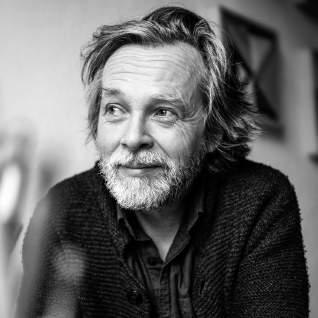
THOMAS RAP ...............................................................................................................
12
Martijn Couwenhoven
The Prayer of Jonathan Simmers
A short, sensitive novel about complex family ties

When Jonathan Simmers meets his father again after an absence of ten years, the man hands him the urn containing his mother’s ashes. In the week that follows, his father is eager to rekindle their relationship, while Jonathan wonders why he should suddenly trust the man who was never there. Meanwhile, he cares for his halfsister, Lieke, who feels restless about her current life and seems to lose it from time to time… Seeking help, Jonathan turns to his mother - little prayers for direction and clarity, for himself, for Lieke.
The Prayer of Jonathan Simmers is a moving novel about trying to get a grip on time, a story about connecting the present and the past, of life and death.
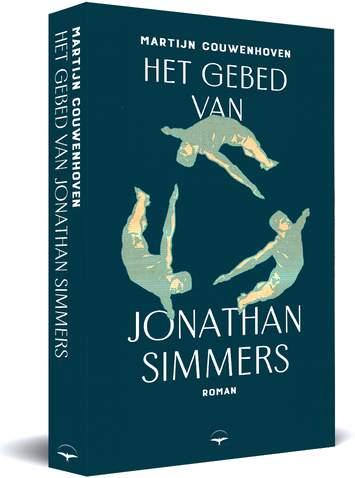
NEW LITERARY FICTION ...............................................................................................................
World rights: Thomas Rap • Fiction • 187 pages • September 2023 • English sample translation available
13
Praise:
‘It may make your head spin, but even without all the connections that Peeters conjures up, these are beautiful and vivid stories as well as character sketches of people with longings and dreams. […] a book about connection, about how the encounter with the other gives your life meaning, about how history is made wherever people come together.’
- Trouw
‘Peeters’s oeuvre is like an echo chamber where an array of themes reverberate and recur. There’s the magic of serendipitous encounters, the cultivation of wonder and the longing for meaning and connection. But above all there’s the desire to get to know people, to fathom their depths and to unveil something of their essence. ’
- De Tijd
KOEN PEETERS (1959) is the author of an oeuvre that is both rich and highly stylistically refined. His novels have been awarded major literary prizes, such as the F. Bordewijk Prize for The Flowers (2009), the E. de Perron Prize for A Thousand Hills (2012) and the ECI Literature Prize for The People Healer (2017). His novel Room in Oostende (2019), a homage to the city of artists and to friendship, was also widely acclaimed. 2021 saw the publication of his novel The Gracious in which he draws an extraordinary connection with The People Healer.

DE BEZIGE BIJ ...............................................................................................................
14
Koen Peeters Georges


Koen Peeters magically brings James Joyce, Georges
Lemaître and other historical figures to life in his new novel, as playful as it is grand in scope
In Oostende, a postal worker meets a world-famous writer who is spending his summer vacation there. In Leuven, the paths of a brilliant astronomer and a young woman cross in the city park. After decades without contact, two former friends encounter each other in Georgia. And a painter tormented by bloody visions watches a companion slide into terrorism.
Georges centers on four extraordinary encounters, about actual historic figures and moments in time in which it is impossible to disentangle what is real from what has sprung from the writer’s fantasy.
Georges is a warm-hearted novel full of coincidence, history and art; a playful, frisky story that sometimes turns out quite profound.
NEW LITERARY FICTION ...............................................................................................................
De
Bij • Fiction • 288 pages • September 2023 •
World rights:
Bezige
15
Excerpt:
My great-aunt told me that I was the last Falke, the name-bearer of the family, the tail end. If I didn’t reproduce, the whole shebang would come to a halt. “You have a calling, my boy!” She envisioned the patriarchy, and it pleased her. She herself had sons, but they all bore her husband’s name.
Our name is Falke. When we introduce ourselves, we ’ re sometimes asked, “Are you related to the famous Falke sock family?” And we often reply, “Yes, but we ’ re the poor branch.” We’ve never been absolutely certain of a blood tie between the two families, but how many Falkes can there be on a few square kilometers in Germany? There are more trees than people in that part of the country. For decades we ’ ve allowed ourselves to believe that we do indeed share the same ancestor. That myth has never been debunked or confirmed, until now.
What is certain is that us Falkes were among the oldest noble families of Europe, although our name has long since been shunted aside and forgotten. We come from the region between Hessen and Kassel, in central Germany. In the struggle to keep our land and save our skin we started wars and fought battles, engendered countesses, knights and princes.
JONAH FALKE (1991) is a writer, artist, journalist, documentary filmmaker and columnist for newspapers, magazines and a radio program. His previously published novels are Bontebrug (2016) and The Most Beautiful Woman in the World (2019). In 2022 his nonfiction book From Poverty was published and he won a Mercur Prize for the Reportage of the Year.
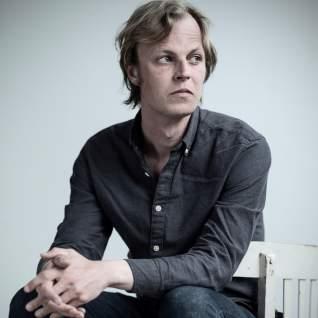
THOMAS RAP ...............................................................................................................
‘Falke is a child of Joseph Roth. ’
16
-Geert Mak
Jonah Falke The History of my Sock

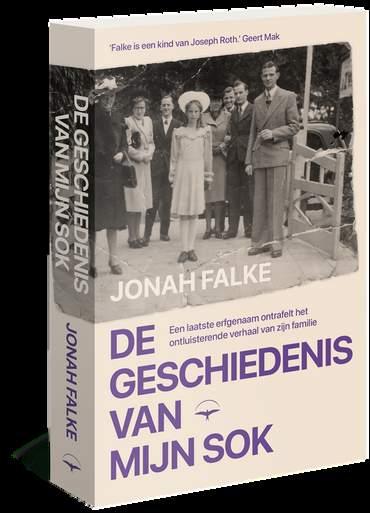
An unorthodox family history about the question why a bloodline ought to be carried on
Once upon a time, in the German town of Schmallenberg in Sauerland, the Falke family – among the oldest nobility of Europe – began knitting socks. They became world famous for this venture, and ultimately very rich. Jonah is the last heir, the lineage holder – however, it must be noted he descends from the poor arm of the family. His ancestor had left Sauerland for the Netherlands to seek his fortune. His descendants were soldiers, millers and janitors, people who did not lead grand lives. Prompted by his great-aunt, who fears that the family name will disappear if he doesn’t procreate (“You have a calling in life, my boy!”), and by the memoires of his grandfather, Jonah sets out in search of his ancestors. Exactly which bloodline is he supposed to carry on? A search for family members takes him from the eastern Netherlands to New York, Canada, Berlin and finally Schmallenberg. Each person he meets along the way tells him their own version of the truth, and it turns out that hidden behind the ostensibly respectable family is a history of sadism and violence.
NEW LITERARY NON-FICTION ...............................................................................................................
World rights: Thomas Rap • Non-fiction • 269 pages • October 2023
17
Excerpt:
The village, which was located on a fault line in both the literal and the figurative sense, for yet another severe earthquake had occurred there in 1976, was an extreme example of how a border town had become a plaything of history. How had the inhabitants dealt with it? What were their daily lives like? For it wasn’t just abstract numbers beneath all those fingers of the rulers and generals that had pointed to Kobarid on the charts and topographic maps. It was people, with all their good and bad characteristics. Each time, after yet another changing of the guard, they had had to make choices: participate, tolerate, look the other way, rise up in resistance, betray, leave or make the best of it. Whenever a new flag was raised in this little community, what happened to the people who had collaborated with the prior regime, whether their heart had been in it or not?
THEO TOEBOSCH (1963) is a journalist and writer. He writes for various media on the subjects of archaeology, heritage and history. His published works include Groundwork (2003), Chosen Scapegoats: A Family History (2010) and The First Fallen (2014).

DE BEZIGE BIJ ...............................................................................................................
18
Theo Toebosch Kobarid The Town With Too Much History
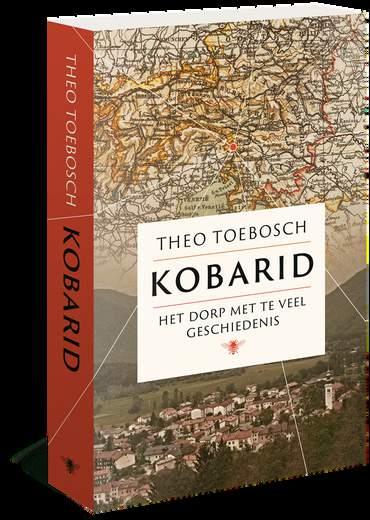
The history of Europe through the eyes of one town
Nestled among the foothills of the Julian Alps on a rapidly-flowing, emerald green river lies Kobarid. Over the past two centuries, this Slovenian town on the Italian border, with barely eleven hundred inhabitants, has undergone a number of border and power shifts as well as many natural disasters, two world wars and a war of independence.
Kobarid has been visited by an extraordinary number of famous individuals from the annals of Big History. Emperor Franz Joseph, Marshal Tito and the writer Ernest Hemingway are just a few of the luminaries associated with its past.
The question is: what have the inhabitants done with all this history? How much history can one person or place absorb?
Theo Toebosch, who became fascinated with Kobarid after a single chance visit, sketches a lively portrait of a place that has been searching for its own identity in the spotlight of an ever-changing Europe.

NEW LITERARY NON-FICTION ............................................................................................................... 19
World rights: De Bezige Bij • History • 364 pages • October 2023
Excerpt:
Sometimes language feels like clay, and my understanding of it like a tool. At the newspaper where I work they pay me to polish and shape other people’s sentences. And normally the very limitations of language make it so interesting to work with. When words are too unwieldy you try to bend them by applying them in an unusual way or by combining them. If the language limits you, you try to say things by leaving them out, by dancing around them so that what has been left unsaid becomes visible. But in recent years I had felt increasingly powerless when it came to my own work.
I was no longer able to write. At least no longer able to write about things that others would read, knowing that the meanings of words had made a fool of me. Embryo. Fetus. Child. Baby. Unborn life. All these words have their own story, their own agenda – no matter what word I use, it has implications. And none of them fully describes what I’m trying to say. I feel my words become distorted even before I write them down.
MEREDITH GREER (1988) is an AmericanDutch journalist and writer. She is a copy editor at newspaper De Volkskrant. Prior to that she worked as a journalist at BNR Nieuwsradio and at public broadcaster BNNVARA, and as a weekly columnist at HP/De Tijd. She has published essays, opinion pieces and articles in Vrij Nederland and De Volkskrant. She is also active as a public speaker and moderator in both the Netherlands and Belgium. Interlude is her literary debut.
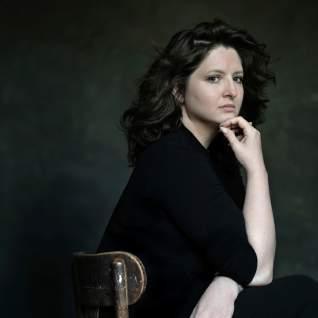
DE BEZIGE BIJ ...............................................................................................................
20
Meredith Greer Interlude
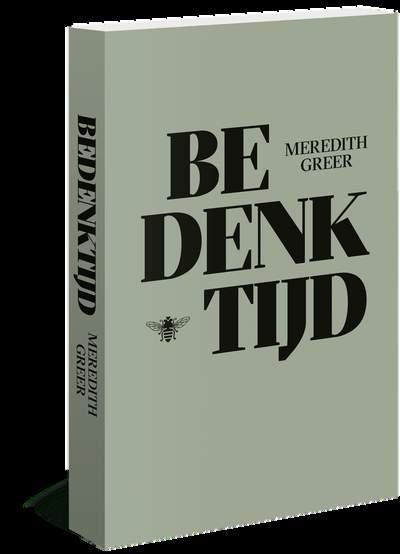
What happens to the losses we prefer to forget, and the sadness no one sees?
What happens to the anger we swallow? How do you hold on to what's left, after language has fallen short? When author Meredith Greer has an abortion in complete isolation, she starts writing in the midst of her grief and anger. While looking for the words to describe what has happened, she becomes fascinated by the magical, alienating and destructive properties of being stuck in a state of in-between. She starts exploring different liminalities – such as invisibility, the portrayal of grief and the inevitability of forgetfulness – and interweaves her studies with fragments of poetry, prose, and raw, unvarnished recollections. The result is an ingenious book, in which Greer defies the boundaries between genres and tries to expand the ways she can use language when words fall short. In the tradition of Susan Sontag, Olivia Laing, and Claudia Rankine, Interlude creates an understanding of what it is to be human while being caught in the inbetween.

NEW LITERARY NON-FICTION ...............................................................................................................
World rights: De Bezige Bij • Non-fiction • 207 pages • November 2023 • English sample translation available
21
Excerpt:
What do the following statements have in common?
1. “Ideas are overrated. I’m sticking with my gut feeling.”
2. “Everything is uncertain.”
3. “This sentence is false.”
These are all statements that contradict themselves when applied to themselves. Sentence 1 itself is an idea, not a gut feeling. If everything is uncertain, why should sentence 2 itself be certain? If the third sentence is true, then it contradicts itself, because if it’s false, that means it has to be true, but if it’s true, then it contradicts itself, and so on.… With these sentences we enter the domain of the “liar’s paradox.” The Cretan philosopher Epimenides once said, “All Cretans are liars.” If he is telling the truth, his statement is false. But if he is lying, his statement is also false. These are the kinds of statements that may bring us closer to a certain mystery of reality. Or at least to the inability of our brain to take it all in.
LAMMERT KAMPHUIS (1983) is a philosopher and writer. He taught at various schools and is a highly sought-after speaker at congresses and festivals. He is also a senior lecturer at The School of Life in Amsterdam. His book Philosophy for an Incomparable Life (2018) was his breakthrough to the wider public. Translation rights have been sold to Germany, Spain and South Korea.
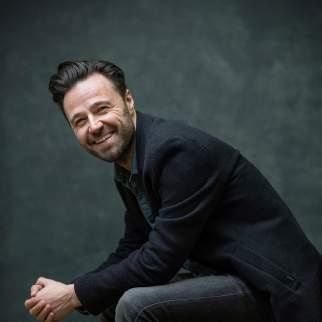
DE BEZIGE BIJ ...............................................................................................................
22
Lammert Kamphuis Addicted to Always Being Right
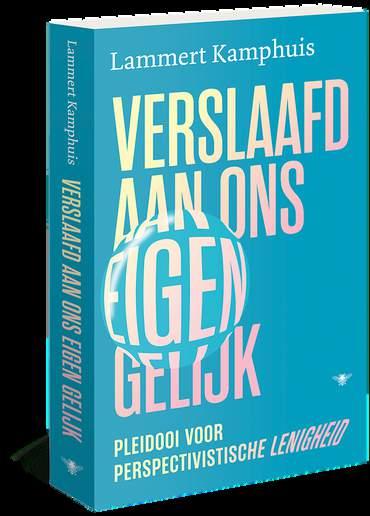
An urgent and fresh defense of philosophy as a cure for polarization

Lammert Kamphuis grew up in a world of truths and lies, black and white. Ten years ago, he broke away from his strict religious environment with pain and difficulty in the hope of finding room for shades of gray. To his surprise, he has noticed that in current times society has increasingly come to resemble the fundamentalist church from which he freed himself. We’re divided into different camps, with little regard for nuance and less and less interest in the way others think.
In Addicted to Always Being Right, Kamphuis prescribes philosophy as a cure for entrenched beliefs. With insightful analyses and surprisingly practical tips, he shows how we can train our minds to become more agile. Society as a whole, as well as organizations and relationships, are in desparate need for this skill. Long live perspectivistic agility!
NEW LITERARY NON-FICTION ............................................................................................................... World rights: De Bezige Bij • Philosophy • 176 pages • August 2023 • English sample translation available
23
THOMAS
Excerpt:
In our family it was the most famous photo in existence. My mother, ten years old, was featured in The New York Times of October 5, 1952, along with her little brother. The photo was taken during the World Series, which that year was being played between the New York Yankees and the Brooklyn Dodgers.

ROBERT VUIJSJE (1970) is a writer and journalist. He published the novels Only Respectable People which was awarded the Golden Owl and sold more than 200,000 copies, Best Friend and The Judgment of Solomon, and the collection of interviews But Where Do You Really Come From?. He is now working on his fourth novel.

RAP ............................................................................................................... 24
Robert Vuijsje Make the World a Better Place
My mother's story

Sheila Gogol, the mother of writer Robert Vuijsje, died in October 2022 after a life that can best be compared to that of Forrest Gump. Almost by accident she was present at historic events such as the March on Washington, where Martin Luther King gave his “I Have a Dream” speech; she met figures such as Malcolm X and Marilyn Monroe; and she worked in the Anne Frank House with Otto Frank, Anne’s father. Yet this unconventional life, which took her right through the tumultuous ’50s, ’60s and ’70s, was not the main topic of the conversation she had with her son during her last weeks. What she did talk about was mainly what she had learned during that remarkable life: tikkun olam, as they say in Hebrew, make peace, not war. Raise your children so they leave the world a better place. She herself had always followed her own advice. Make the World a Better Place is a son ’ s moving ode to his mother, and to a way of life.
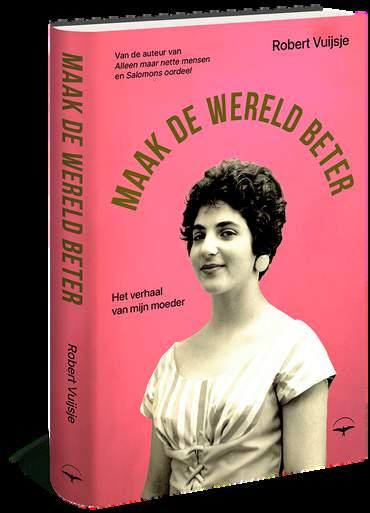
NEW LITERARY NON-FICTION ...............................................................................................................
Thomas Rap • Memoir • 160 pages • November 2023
World rights:
25
Praise:
‘The Man in the Panama Hat is a sequence of wonderful stories about the Count and the artists whom he encouraged, supported financially and –what he most enjoyed – put in touch with each other, resulting in interdisciplinary collaborations.
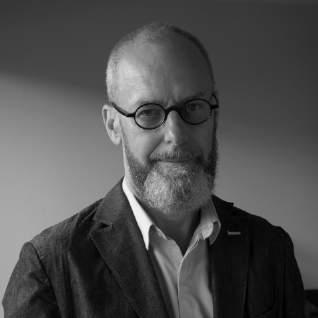
Auguste Rodin, Hugo von Hoffmannsthal, Richard Strauss, Käthe Kollwitz, Thomas Mann, Virginia Woolf, Rainer Maria Rilke, Vaslav Nijinsky: all of them were in the Count’s address book.’
-Trouw
Excerpt:
Harry Graf von Kessler [ ...] had exquisite taste that combined elements from modern life with practices taken from aristocratic circles, he rebelled against established values without ever really breaking with them, and he adopted an independent, almost impassive attitude. In doing so, the Count satisfied what Jules Barbey d’Aurevilly regarded as the paradoxical feature of intellectual dandyism: to play with the rules while honoring them. He refused to conform to the standard political practices of the aristocracy, but as a patron he distanced himself from the bohemian lifestyle of the artists whose company he sought. He was an outsider, he committed himself to no one and he refused to live according to other people’s expectations. He saw himself as a new man. I had the impression that I could learn a great deal from him.
RUDI MEULEMANS‘ (1963) literary nonfiction debut Beyond the Limits: A Journey Through a Hidden Writer’s Life was received with immediate acclaim. As a theatre maker he directed more than thirty-five productions consisting mostly of his own work. A selection of these plays appeared in the collection Collected. Another Life: A Journey in the Footsteps of Vita Sackville-West, Harold Nicolson and James Lees-Milne was published in 2020.
DE BEZIGE BIJ ...............................................................................................................
26
Rudi Meulemans
The Man in the Panama Hat
Harry Graf von Kessler: Star Witness of the Modern Age
A journey through the early twentieth century by way of art, theater and politics

After fleeing Nazism, Harry Graf von Kessler (1868-1937) emigrated to Mallorca and wrote his memoires, a retrospective of his cosmopolitan, modern life. The Count knew everyone, and everyone knew the Count.
Harry Kessler was an intellectual dandy, and politics and art were the focus of his life. He defended the arts from every form of political interference. As an arts patron, lover of males, publisher, thinker and writer, he pledged himself to no one and refused to live according to other people’s expectations.
In The Man in the Panama Hat, Rudi Meulemans takes us on a journey through a changing world. Harry Graf von Kessler wanted to be a new man. The modern age, with its limitless possibilities and unexplored temptations, was his laboratory.
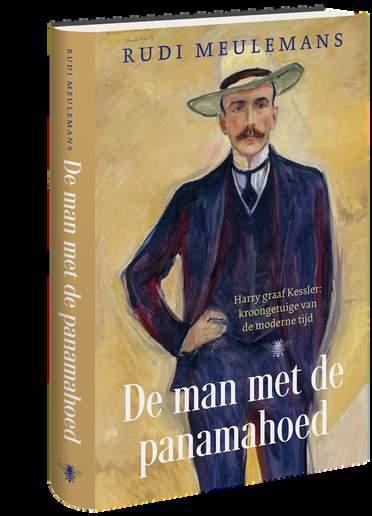
NEW LITERARY NON-FICTION ...............................................................................................................
World rights: De Bezige Bij • Non-fiction • 373 pages • May 2023
27
Praise:
‘Besides being a philosophical analysis of our handling of the climate crisis, this new book by Jan Drost is also an impassioned call for change. The author is moralistic, but that is actually his great strength.’
-Filosofie Magazine
‘Supported by great writers and thinkers, Jan Drost shows us how to become better people. While we still can. ’ -JAN
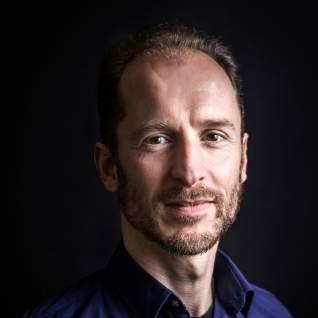
‘The central question This is Not the End poses is: why are so many people not doing anything while we are in the midst of a climate catastrophe. (…) The problem of lack of action is not caused by a lack of information, Drost writes. The truth seems not to touch them, not to get through to them. Drost makes a comparison with the five stages of grief: denial, anger, bargaining, depression and acceptance. People who continue to consume as before are probably in the first phase, he argues. The climate crisis does not seem to bother them but they are engaged in climate grief. And that offers perspective, a chance to convince them to act differently.’ -
Trouw
JAN DROST (1975) is a writer and philosopher. He is on the staff of the Hogeschool van Amsterdam and The School of Life. He writes for the newspapers NRC, Trouw, Algemeen Dagblad, de Volkskrant and Filosofie Magazine. His previously published books are The Romantic Misunderstanding (2011), Thinking Helps (2015) and When Love is Gone (2017). This is Not the End: A Good Life in the 21st Century was published in 2023.
DE BEZIGE BIJ ...............................................................................................................
28
Jan Drost
This is Not the End A Good Life in the 21st Century

A human being cannot live without his habits, but stubbornly clinging to the wrong habits has brought us to where we are today: to a climate crisis of unprecedented proportions. The only way out of this crisis is change. But how do you even begin? How do you make the right choices? How do you live in hope? How do you learn to be true to yourself and to the earth at the same time?
In This is Not the End, Jan Drost searches for a good life for people of the twenty-first century. With the help of writers and thinkers such as Marcus Aurelius, Søren Kierkegaard and Hannah Arendt, and based on concepts such as grief, guilt, conscience, love and holistic thinking, he shows that there is always another way to get things done, no matter how much opposition we face from politics, society, our friends, our family and ourselves. Drost shows us how to become better people. While we still can.
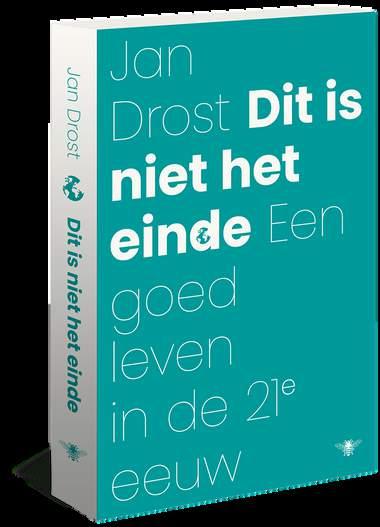
NEW LITERARY NON-FICTION ...............................................................................................................
World rights: De Bezige Bij • Philosophy • 288 pages • June 2023 • English material available
29
How to become better people: a philosophical path to change
Excerpt:
After the first illusions Hans grabs the microphone and asks if everyone is having a good time. They are. Then comes the story about the two kinds of audience that come to see him: those who think they’ve finally figured it out, who want to unmask him, and those who’ve come to have fun. He wishes the second group an enjoyable afternoon. The other group he wishes a lot of luck. The people laugh, swept up by the bombastic music and Hans’s unbridled enthusiasm. The microphone is set aside and the show continues. Time for the “fire spears, ” which involves locking up an assistant in a chest through which a large number of burning spears are thrust. Hans tosses the burning torches he’s used to light the spears with to Dann, who catches and extinguishes them. This part of the trick has gone wrong on occasion, with a burn here and a singed eyelash there. Occupational hazard, no whining allowed.
MARCEL LANGEDIJK (1972) is a writer and journalist for magazines such as LINDA., Revu and Margriet. He is also well known for his biographies of Dutch celebrities Gordon and Najib Amhali and the book Luckily We Still Have the Photos about the euthanasia of his brother.
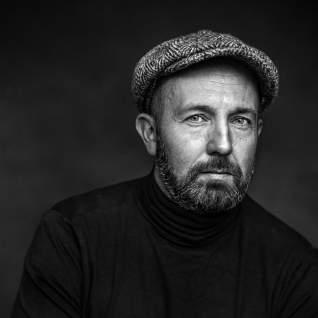
THOMAS RAP ...............................................................................................................
30
Marcel Langedijk Hans Klok The Life Behind the Illusion
The honest, witty and irresistible tale of ‘The World’s Fastest Magician’
Since the nineties Hans Klok been performing non-stop all over the world: from China to France, from Germany to Las Vegas, from England to a circus tent on a windswept industrial site in the Netherlands. He’s one of the world’s top three magicians, right up there with the legends David Copperfield and Siegfried & Roy. A real craftsman, obsessed with magic and its history since he was little.
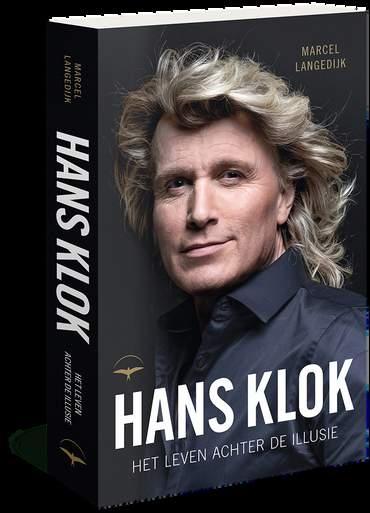
Despite still being at the top of his game, the years are starting to add up for The World's Fastest Magician: long days and nights on tour, injuries that are acting up, a blouse that is now a bit tight around the belly. Journalist Marcel Langedijk closely followed Hans Klok for a year in search of the man and the world behind the illusion.
World rights: Thomas Rap
• Biography

• 304 pages
• September 2023
NEW LITERARY NON-FICTION ...............................................................................................................
31
Table of contents
1. How did the universe come into existence?
2. How did the earth come into existence?
3. How did life first come into existence?
4. How did all the life forms come into existence?
5. What is the difference between humans, animals and plants?
6. What is the difference between women and men?
7. What is the right thing to do?
8. Is there life after death?
9. What does the future hold?
10. How are scientific facts established?
Afterword
Sources, ifs and buts
JOKE VAN LEEUWEN (1952) is a writer, poet and artist, and she performs for adults and children. Her work has been widely translated and has received many awards, among them the Constantijn Huygens Prize, the Gouden Ganzenveer (the Golden Goose Feather) and the AKO Literature Prize.
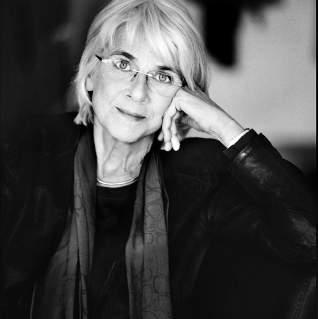
PETER MOOIJ (1985) obtained his doctorate in oil-producing algae from Delft University of Technology. In 2017 he wrote a book of popular science called The Fat Algae. Peter is now working at AMS Institute, where he is conducting research on the production of high-quality materials from urban waste flows.
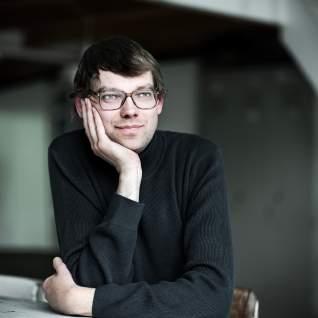
THOMAS RAP ...............................................................................................................
32
Peter Mooij en Joke van Leeuwen Our Stardust Brains
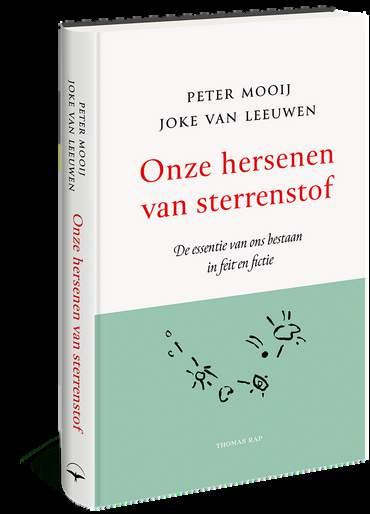
The essence of our existence in fact and fiction
How was our planet formed? What happens after you die? Humanity has been pondering such “big questions” for ages. According to Christian teaching, God created the earth in one week. In ancient Greece, the dead were given a coin to take with them on their passage to Hades, the kingdom of the dead. The sixteenth century saw the emergence of modern science, which offers substantiated answers to these big questions. According to today’s science, the earth emerged from a cloud of matter and gas, and there is nothing after death. So science does provide answers, but it doesn’t do so in story form. According to Peter Mooij and Joke van Leeuwen that is unfortunate, because stories have the power to stay with you for your whole life. Our Stardust Brains offers both scientific and fictional answers to the big questions we all have.

NEW LITERARY NON-FICTION ...............................................................................................................
World rights: Thomas Rap • Populair science • 238 pages • October 2023
33
Praise:
John Kuipers is the winner of the Golden Noose Award 2023 for the best Dutch crime novel
‘Kuipers has written a superb police novel on a solid foundation of reality. '**** Detective & Thriller Guide
'Once again Kuipers manages to intrigue us with his description of occupied Holland in 1941 and with his credible plot.'
***** Thrillerweb
‘Kuipers writes evocatively and with great humour.‘
-NRC Handelsblad
JOHN KUIPERS (1955) worked as a journalist for the largest Dutch news agency ANP, for almost four decades. He has published several books, including The Spirit of the Game, a biography of the chess grandmaster Jan Timman. Mussert’s Shadow was his debut thriller and won him the Golden Noose Award 2023. It is the first crime novel in a series set in The Hague during the war years, with the congenial Charlie Swieninck in the lead role.
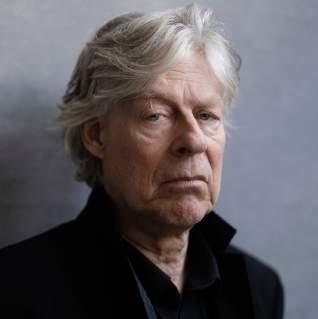
CARGO ...............................................................................................................
34
John Kuipers
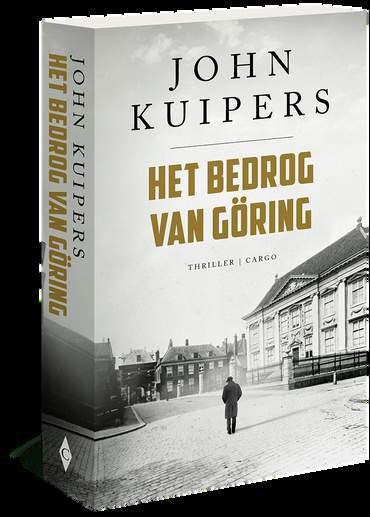
The Göring Hoax
Part II in the prize winning crime series featuring head of the Special Crimes Unit Charlie Swieninck
On a chilly morning in August 1941 a corpse is found floating in the lake right next to the parliament’s building. It’s the body of the Brussels art expert Joseph Foulon, who had been hired by the adjacent Mauritshuis museum to examine a recently surfaced work by the Dutch master Frans Hals. One day after the discovery of the body, the painting in question, Laughing Girl, goes missing, having been replaced by a forgery.
Charlie Swieninck, head of the Special Crimes Unit of the Hague police, sets out in search of the murderer and the thief. He is assisted by the art historian Rosalie Callenbach, who introduces him to the complex art world, which is teeming with greedy buyers, charlatans, forgers and connoisseurs. The powerful German Reichsmarschall Hermann Göring has gathered his own pack of cunning henchmen to lay hands on the portrait.
World rights: Cargo

CRIME FICTION ...............................................................................................................
• Historical crime series • 395 pages • June 2023
35
Worldrights:DeBezigeBij
Rightssold:
Colibri(Bulgaria)
ChinaTranslationand
PublishingHouse(China)
Fraktura(Croatia)
Dobrovský(CzechRep.)
Gutkind(Denmark)
KustantamoS&S(Finland)
Gallimard(France)
btb-Verlag(Germany)
Libri(Hungary)
NeriPozza(Italy)
Marginesy(Poland)

PushkinPress(UK/ANZ)
HarperCollins/HarperVia (USA/Canada)
Genre:Novel
Pages:384
Published:Nov.2021
Fulltranslationsavailablein severallanguages
Anne Eekhout Mary
‘The narrative unfolds in hypnotic language steeped in fantasy and allusion, poetically translated from the Dutch by Laura Watkinson.’ The New Yorker
The year is 1816 when Mary Shelly, only eighteen years of age, creates the iconic story of Frankenstein’s monster. It is the same summer that Mary and her lover Percy Shelley visit Lord Byron and John Polidori at Lake Geneva. The friends spend long evenings by the fire, drinking laudanum-infused wine while reading one another ghost stories. One night Lord Byron suggests that they each write a ghost story of their own and this triggers a memory in Mary, taking her back four years earlier to Scotland, where she spent the summer and met Isabella Baxter. As Mary falls in love with Isabella, they are plunged into an enigmatic adventure in which imagination and reality prove to be equally strong components. It is from this memory that her story about Frankenstein’s monster arises.
Anne Eekhout brings the young mother, feminist avant la lettre and writer Mary Shelley to life in a highly original novel that is crafted from real historic events and imbued with great imagination.
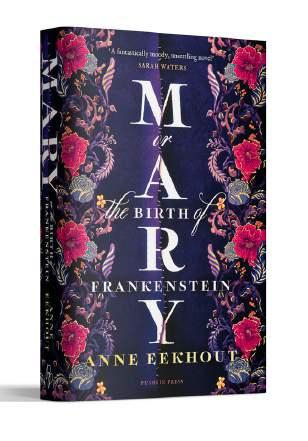
SUCCESSFUL TITLES FICTION ...............................................................................................................
36
cover Pushkin Press
Valentijn Hoogenkamp Antiboy
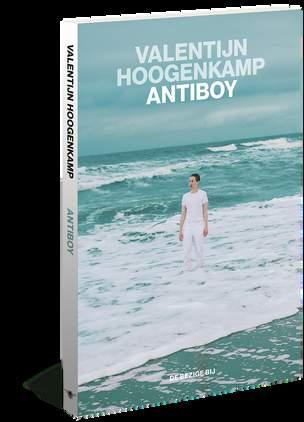
A moving coming of gender tale

English & Slovenian language rights sold
‘The lyrical passages and Hoogenkamp’s eye for extravagant detail make reading this at times painfully poignant story a sweltering literary experience.’
– De Standaard
When, as a result of a genetic mutation, Antiboy discovers he has to undergo a mastectomy, he realizes: now I no longer have to live as a woman. This causes confusion on the part of his doctors, friends, family and partner. Has he always felt this longing? It provokes harsh confrontations with the past and with his loved ones, who are unable to let go of the person they thought they knew. Surrounded by loss and mourning, Antiboy goes in search of hope and the meaning of being oneself. Antiboy is a provocative and lyrical tale of loss and of finding freedom in transformation.
World rights: De Bezige Bij
Rights sold:
Seagull Press (World English)
SKUC (Slovenia)

Genre: Autofiction
Pages: 107
Published: Sept. 2022
English sample translation available
SUCCESSFUL TITLES FICTION ...............................................................................................................
37
World rights: Cargo

Genre: Crime series, first volume out of five
Pages: 384
Published: April 2022
Winner of the Golden Noose Award 2023:
‘As judges, we found this combination of originality, suspense, narrative voice and layering irresistible. We are therefore delighted to award the Golden Noose 2023 to John Kuipers for his debut Mussert’s Shadow.’
John Kuipers Mussert's Shadow
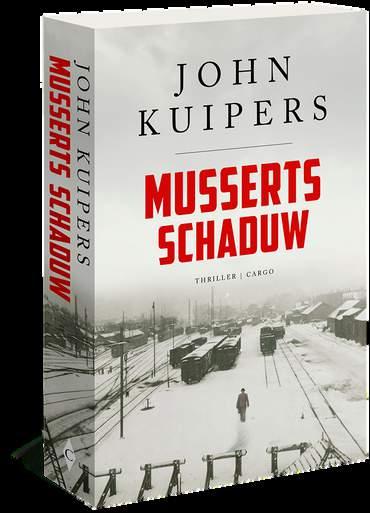
Historical thriller set in the Netherlands during the occupation
He is unconventional, impatient and exceedingly tall. He is also scared of dogs, a bad shot and equipped with a good sense of humour. Chief inspector Charlie Swieninck is the head of the Special Crimes Bureau, and must deal with the German occupiers, who slowly but surely are asserting their authority within the The Hague police.
On 29 June 1940, a day of national resistance, Charlie is summoned after a murder at the Hollands Spoor train station. The victim is Marnix Maas, an important Dutch National Socialist juridical counsellor. The investigation inevitably leads to the heavyweights within the Party, including Rost van Tonningen, Feldmeijer and naturally Anton Mussert, the leader. Meanwhile, the Party puts pressure on Charlie to find the perpetrator somewhere else.
SUCCESFUL TITLES FICTION ...............................................................................................................
38
Marcel Möring Family Walk
‘Marcel Möring is without a doubt one of the most perceptive authors of our time and he has the greatest imagination.’ – The Times Literary Supplement on previous work
Four years ago, Marcel Möring returned to the northern Netherlands, where he had grown up. Wandering through the forest and fields, memories returned to him there that seemed far away and deeply hidden. Now, more than half a century later, he can still –somewhere between waking and dreams –walk to his mother’s adopted parents, who had hidden her during the war. In 1945 his mother had chosen to stay with them instead of returning to Rotterdam, her city of birth.
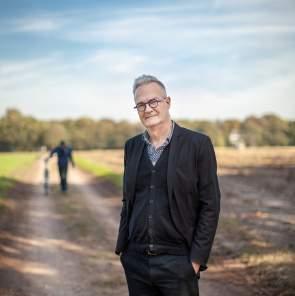
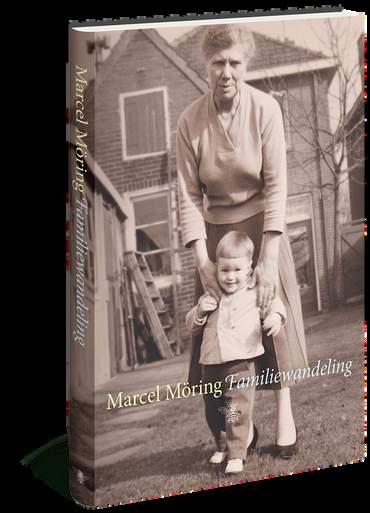
‘It’s a place where I like being, because of the warmth, the smell, the suggestion, as well, of another world, but I can’t touch anything. That is one of the few things forbidden in my grandparents’ home.’ In Family Walk, Marcel Möring dives, while walking through the landscape of his childhood, into the past and searches for defining people and events. For the first time, he reveals his family history, which is largely characterized by forgetting, forgetting and carrying on.
World rights: De Bezige Bij
Rights sold: Luchterhand (Germany)
Genre: Autofiction
Pages: 96
Published: November 2021
English sample translation available

SUCCESFUL TITLES FICTION ............................................................................................................... 39
Jeroen Olyslaegers Will
The Times Historical Fiction Book of the Year
Observer Book of the Year

Film tie-in edition director Tim Mielants (third season Peaky Blinders) On Netflix in 2024
It is 1941, and Antwerp is in the grip of Nazi occupation. Young policeman Wilfried Wils has no intention of being a hero – but war has a way of catching up with people. When his idealistic best friend draws him into the growing resistance movement, and an SS commander tries to force him into collaborating, Wilfried’s loyalties become horribly, fatally torn. As the beatings, destruction and round-ups intensify across the city, he is forced into an act that will have consequences he could never have imagined. A searing portrayal of a man trying to survive amid the treachery, compromises and moral darkness of occupation, Will asks what any of us would risk to fight evil.
70,000 copies sold
World rights: De Bezige Bij
Rights sold: Dumont (Germany) Odeon (Czech Republic), Stock (France), Pushkin Press (World English), Seix Barral (Spain), Edizioni E/O (Italy), Helikon (Hungary), Ara Llibres (Catalan), Ombra (Albanian)
Genre: Novel
Pages: 332
Published: August 2016

Prizes: Winner of the Fintro Literature Prize, the Flemish cultural Prize ULTIMAS and the F. Bordewijk Prize
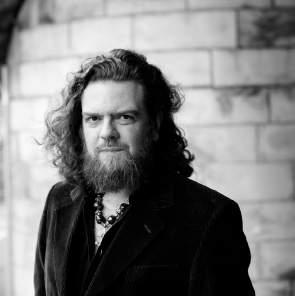
SUCCESSFUL TITLES FICTION ...............................................................................................................
40
Gijs Wilbrink The Animals
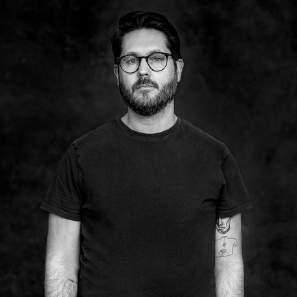
'In Gijs Wilbrink's thunderous debut novel, you can feel the lurking gaze of rural village life poking through. (...) It is a novel to be uncomplicatedly excited about.'
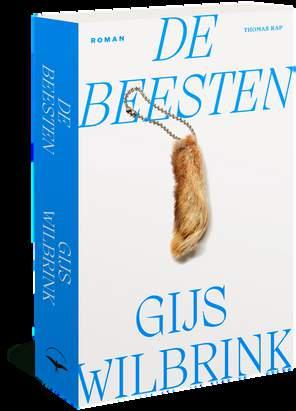 **** NRC Handelsblad
**** NRC Handelsblad
Tom Keller belongs to the most notorious family in a region filled with poachers, mink farms and other shady enterprises. He grows up in this milieu full of secrets, blessed with a prodigious talent for motocross. When, as a grown man, he suddenly goes missing, his rebellious daughter returns to the home turf she was so eager to leave behind in search of him, culminating in a family reunion that takes a dramatic turn.
‘If only he’d done just that – oh, if only he’d wrung their necks, then that would have been the end of that, and then everyone would have been spared the whole unholy mess later on and then maybe no one would have ever had to tell this story. But they found him, in the beam of the motorcycle lamp, amid the thistles and stinging nettles at the side of the road, shaking and bawling just the way you’d expect a nine-year-old kid to do in a fix like that.’
A fantastic hybrid of Breaking Bad and Joe Speedboat
Worldrights:ThomasRap
Rightssold:
Ullstein(Germany)
BunkerBooks(Spain)
TRI(Macedonia)
Genre:Novel
Pages:400
Published:Nov2022
Filmrightssoldto:Topkapi
Englishsample
translationandfive-star

translatedreviewavailable
30,000 copies sold
Featured in Dutch Fiction of the Dutch Foundation for Literature
SUCCESSFUL TITLES FICTION ...............................................................................................................
41
World rights: De Bezige Bij
Rights sold:
Buchet Chastel (France) amijeko edition (Germany)

Genre: Non-fiction
Pages: 256
Published: November 2020
English sample translation available
'Nominated for the ‘Boekenbon’ Literature Prize
• Shortlisted for the European Union Literature Prize
• Nominated for the Euregio Prize 2024
Raoul de Jong Jaguar Man
'‘Jaguar man is a surprisingly rich book. De Jong pulls you into the story, which is full of offshoots and leaps in time and thought. It's incredibly easy to observe through his eyes, surprised and moved, entertained and bewildered. His discoveries become your own.’**** – NRC Handelsblad
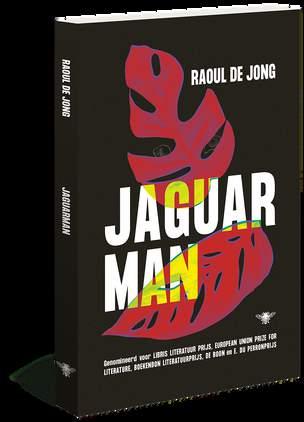
At the age of twenty-eight, author Raoul de Jong meets his Surinamese father for the first time. They speak alike, move alike and both believe in wonders. Then Raoul’s father tells him a story that lingers in his memory: one of his ancestors, a medicine man, could transform himself into a jaguar. Gripped by this mystery, Raoul decides to investigate in Surinam. The history of the former Dutch colony is one of darkness and slavery, but those who search carefully will also find a great deal of hope and vitality. Raoul is living proof: his ancestors somehow managed to survive. During this quest, in which he acquaints himself with Surinamese writers, thinkers and resistance heroes, he discovers that the power of the jaguar was essential for the country, and comes to understand how much everyone can learn from it. In Jaguar Man, written as an adventure novel, Raoul de Jong presents a beautiful ode to the land of his father.
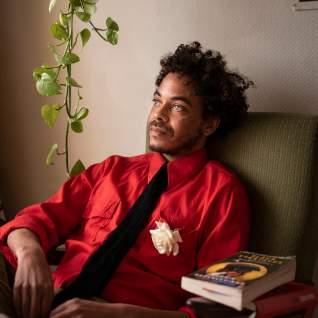
SUCCESSFUL TITLES NON-FICTION ...............................................................................................................
42
Bart Van Loo Napoleon
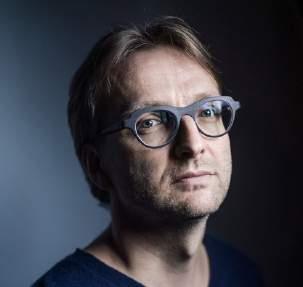
The shadow of the revolution
65.000 copies sold
An essential work on the Revolution and Napoleon in less than 500 pages
Napoleon fascinates us. He is one of the most influential figures in history. But he also raises a huge number of questions. How could an ordinary Corsican manage to convince the French population that he was the figure everyone was waiting for? Who was this emperor who fought his way across Europe, leaving millions of victims in his wake, before becoming bogged down in a marshy meadow near Waterloo? Bart Van Loo goes in search of the man behind the myth and finds answers in the exciting and extremely turbulent period of the French Revolution, when the old world met its demise and everything changed. The shadow of that revolution will always hang over Napoleon.
The French Revolution and Napoleon: the two most captivating Homeric stories in Western history in one sagacious and compelling tale. In the richly illustrated Napoleon: The Shadow of the Revolution, Bart Van Loo sketches an unparalleled portrait of the man and his time.

World rights: De Bezige Bij
Rights sold:
Flammarion (France) Mondadori (Italy)

Genre: History
Pages: 464
Published: November 2014
From the international bestselling author of The Burgundians
SUCCESSFUL TITLES NON-FICTION ...............................................................................................................
43
Worldrights:DeBezigeBij
Rightssold:
Simon&Schuster(World English)
HoffmannundCampe (Germany)
Codice(Italy)

Typotex(Hungary)
AcrossPublishingCo. (Korea)
Otwarte(Poland)
Univers(Romania)
Spartacus(Norway)
Salamandra(Spanje)
Genre:Popularscience
Pages:352
Published:Sept.2022
Max Nieuwdorp
We Are Our Hormones
'He intersperses the latest scientific findings with stories about patients, as well as derailed hormones in world leaders and biblical figures.' NRC Handelsblad
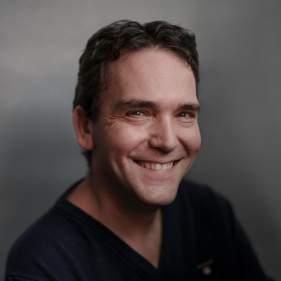
'Max Nieuwdorp gives a lucid and persuasive account of the impact of our hormones throughout every stage of life.'
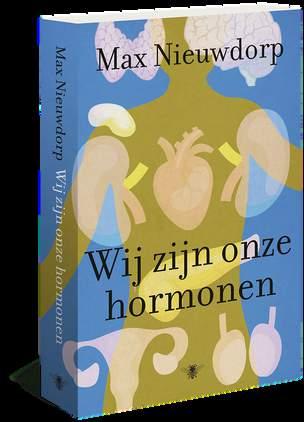
Zin Magazine
Our hormones play a major role in many areas of everyday life. They are responsible for our development in puberty, they are critical for a successful pregnancy and play a primary role in the aging process. Over the past seventy years, scientific understanding of how hormones exert influence over our bodies has increased exponentially. At the same time, many aspects remain underexplored, such as the major impact of gut bacteria on our hormone balance, the changes the female body goes through in menopause and the decline in male hormones during andropause.
This fascinating book, inspired by Nieuwdorp’s day-to-day interaction with his patients, describes the power of hormones in all areas in detail and in an accessible style.
SUCCESSFUL TITLES NON-FICTION ...............................................................................................................
44
David Van Reybrouck Revolusi
Shortlisted for the Libris History Prize 2021
125,000 copies sold
‘Monumental. A book whose force, as you turn its pages, only increases.’
**** De Standaard
Indonesia’s struggle for independence, which reached its climax in the 1940s, has long been regarded as a conflict between the colonial power, the Netherlands, and the colonized Dutch East Indies. But in fact, it belonged to world history. David Van Reybrouck’s Revolusi is the first book to go beyond the national perspective and demonstrate the conflict’s global significance.
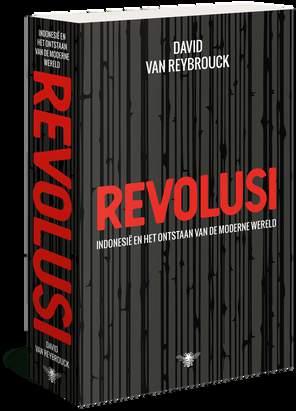
Indonesia was the first country to declare independence after WWII. Once the Japanese occupation had been ended, young rebels engaged in armed resistance against any new form of domination. British, Australian, and above all Dutch troops were sent to restore order and keep the peace, but instead their presence ignited the first modern war of decolonization. That struggle inspired independence movements in Asia, Africa, and the Arab world. The whole world had become involved with the Revolusi, and the whole world was changed by it.
Worldrights:DeBezigeBij
Excl.WorldEnglish:Janklow&
Nesbit
Rightssold:
Siltala(Finland)
ActesSud(France)
Suhrkamp(Germany)
Gramedia(Indonesia)
Feltrinelli(Italy)
W.A.B.(Poland)
Taurus(Spain)
NaturOchKultur(Sweden)
TheBodleyHead(UK)
Norton(USA)
Genre:History
Pages:656
Published:Nov.2020
Fulltranslationsavailablein severallanguages
Documentary:Revolutiein
Indonesië(SavageFilm,2021)
SUCCESSFUL TITLES NON-FICTION ...............................................................................................................
45
World rights: De Bezige Bij
Rights sold:
Hoffmann und Campe (Germany)
Citadelle (Slovakia)
Genre: History
Pages: 432, incl photo-section
Published: Nov. 2022

Full translations available in several languages • Earlier published in Poland (Znak, 2008) and France (Table Ronde, 2000)
English sample translation available
Barbara Skarga After the Liberation
Notes on the Gulag 1946 - 1956
A sharp commentary on every totalitarian system
Rediscovered memoir with an introduction by Alicja Gescinska
The end of World War II is in the air. You are twenty-five, the sun is shining. You put on a light summer dress because it promises to be a beautiful day. Then you are captured by the Russian army and interrogated endlessly, and after a mock trial you end up in the gulag camps as an enemy of the Soviet Union for ten years.
This was the fate of Barbara Skarga. She made a name for herself with philosophical essays and books, but one of her most important works long went unnoticed. In 1985, she published her personal testimony of her life in the gulag camps under a pseudonym. After the Liberation is a historically valuable and topical book; a timeless, poignant account of the difficulty and necessity of remaining human in inhuman conditions.
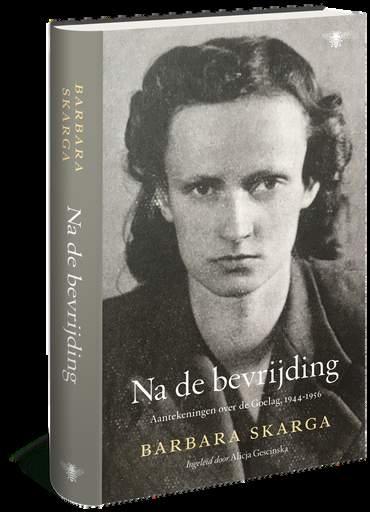
NEW LITERARY NON-FICTION ...............................................................................................................
46
Paul Verhaeghe Discontent
A profound analysis of how culture and society affect our mental well-being
Adam Phillips’ psychological expertise meets Paul Mason’s political engagement
A feeling of discontent is part of our humanity. Despite prosperity on all fronts, the unrest in our society is increasing. In this book, Paul Verhaeghe shows that every era has its own sense of discontent, with its typical problems – such as burn-outs, imposter syndrome and fear of being excluded.
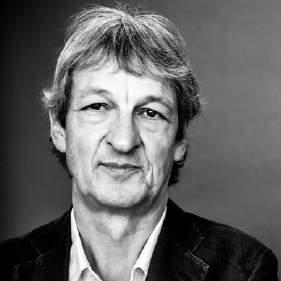
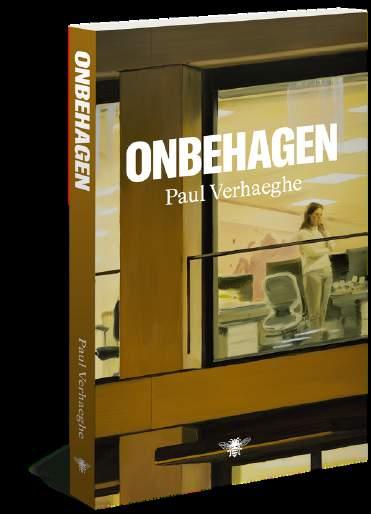
How can we characterise our society, in what ways does it define us as individuals, and what discontent results from it? Are there verifiable explanations for this discontent, in the practice of healthcare, education and labour organisation? In Discontent, Paul Verhaeghe opts for a scientifically backed analysis, averse to ideology-based critiques and utopian solutions. In his recognisably smooth and accessible style, he guides us past insights about these times and expectations for our future.
World rights: De Bezige Bij
Rights sold: Axis (Turkey)
Genre: Psychology/cultural criticism
Pages: 285
Published:May 2023

English sample translation available
Featured by Flanders Literature
NEW LITERARY NON-FICTION ...............................................................................................................
47
MarkBeumer DirectorDeBezigeBij; ThomasRap;Cargo
JasperHenderson Publisher
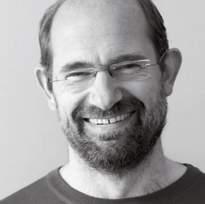

ThomasRap
MarjoleinSchurink Publisher Cargo


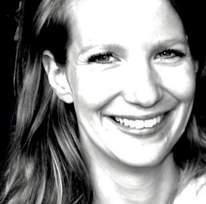

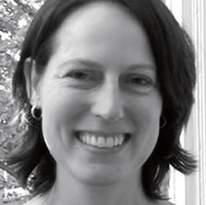

PetervanderZwaag
Editor-in-chieftranslatedfiction


DeBezigeBij
MariekeSoons Editornon-fiction Cargo
KatrijnVanHauwermeiren

Editor-in-chief-fiction
DeBezigeBij
HayeKoningsveld Editor-in-chiefnon-fiction
DeBezigeBij
ChrisKooi Editortranslatedliterature
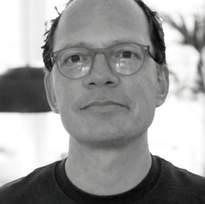
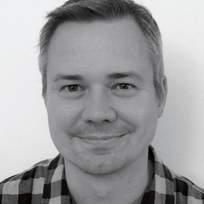
DeBezigeBij;Cargo
JuliëtJonkers Editor
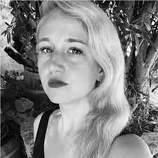
ThomasRap
MarijkeNagtegaal
SeniorrightsmanagerDeBezige Bij;ThomasRap;Cargo

MariskaKortie Editornon-fiction
DeBezigeBij
UtaMatten
RightsmanagerDeBezigeBij; ThomasRap;Cargo
thomasrap.nl|debezigebij.nl|uitgeverijcargo.nl












































 **** NRC Handelsblad
**** NRC Handelsblad





















